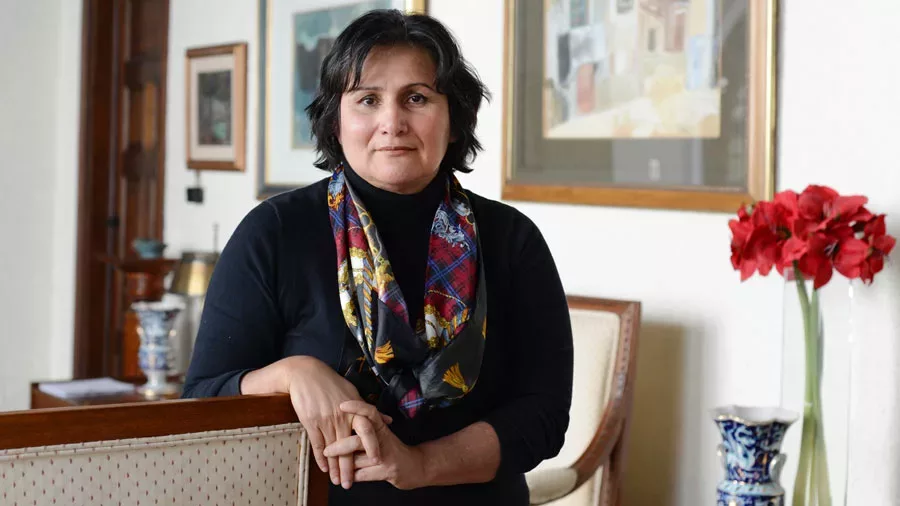Faced with the militarization of Soyapango and many other communities in the country, Celia Medrano expresses fears that this goes far beyond a public security policy, the scope of which is not visible to Salvadorans.
She fears that this response to a plan to bring the military into all areas of the country’s life and that it is fear that will eventually replace the president’s popularity. This and more, she said in an interview with El Diario de Hoy:
“I think that militarizing public security is part of a strategy, perhaps the only one we can be clear about on the part of the power groups that control the Executive: government propaganda. It is the only thing in which there is a strategy.”
“The militarization of public security is more serious; it is the militarization of politics. We saw it on February 9 (2020). That it would not have cost Bukele the presidency to have militarily taken over the Legislative Assembly to achieve a political objective gave us clear indications of what was coming. They use military force to impose themselves on any actor, not only political.”
“This does not respond to security planning probably because the intention is not to provide security but to make the population perceive that they are safe and to normalize that we need military force to achieve security.”
“There is a manipulative discourse that good Salvadorans can rest easy because military action is only for the bad guys. That dilutes the fact that the military should not be searching homes, should not be detained under their criteria, dragging their prejudices, military background, or war training into deciding whether a person will be arrested. And the population is assuming that it is expected that it is the military, not the police, that provides security.”
“In addition, there is a great contradiction in having said that Soyapango was the Latin American Costa Rica and that the same mayor said a few months ago that Soyapango went from being the most violent municipality in the world to the least damaging in the world. These are contradictions of the propaganda apparatus that gives us the messages.”
Celia Medrano: “La militarización de la seguridad es parte de la militarización de todo el ejercicio político”
Ante la militarización de Soyapango y muchas otras comunidades en el país, Celia Medrano expresa temores de que esto vaya mucho más allá de una política de seguridad pública, cuyos alcances no están a la vista de los salvadoreños.
Ella teme que esto responde a un plan de llevar a los militares a todas las áreas de la vida del país y que sea el temor lo que sustituya eventualmente a la popularidad del presidente. Esto y más dijo en una entrevista con El Diario de Hoy:
Pienso que el militarizar la seguridad pública es parte de una estrategia, quizás la única que podemos tener clara por parte de los grupos de poder que controlan Casa Presidencial: la propaganda gubernamental. Es lo único en lo que hay estrategia.
La militarización de la seguridad pública es más grave, es la militarización del oficio de la política. Lo vimos el 9 de febrero (de 2020). Que no le hubiera costado la presidencia a Bukele haber tomado militarmente la Asamblea Legislativa para lograr un objetivo político nos daba claros indicios de lo que venía.
Es decir, hacen uso de la fuerza militar para imponerse ante cualquier actor, no solo político.
Esto no responde a una planificación de seguridad probablemente porque la intencionalidad no es brindar seguridad, sino hacer percibir a la población que está segura y normalizar que necesitamos fuerza militar para alcanzar la seguridad.
Hay un discurso manipulador de que los buenos salvadoreños pueden estar tranquilos porque la acción militar solo es para los malos. Eso diluye totalmente el hecho de que los militares no deberían de estar cateando viviendas, no deberían de estar deteniendo bajo sus criterios, arrastrando sus prejuicios, su formación militar o su entrenamiento de guerra a la decisión última de si una persona será detenida o no. Y la población está asumiendo que es normal que quien da seguridad son los militares, no los policías.
Además, hay una gran contradicción al haber dicho que Soyapango era la Costa Rica latinoamericana y que la misma alcaldesa dijera hace pocos meses que Soyapango pasó de ser el municipio más violento del mundo al menos violento a nivel mundial. Son contradicciones del aparato propagandístico que nos da los mensajes.

